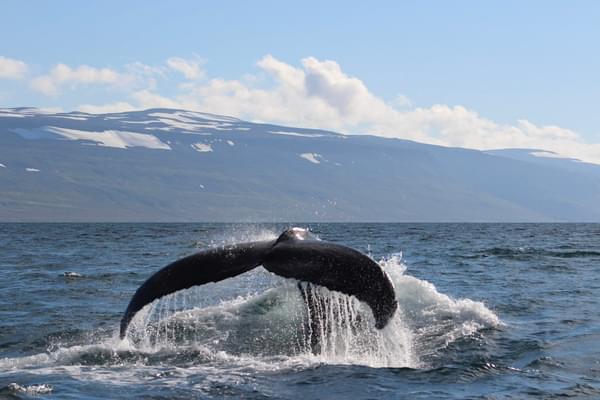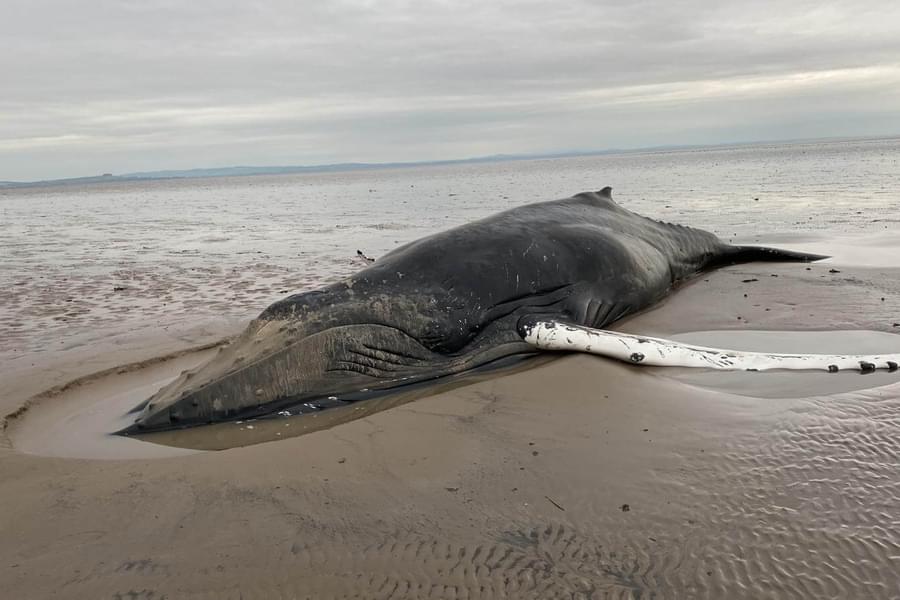Given the number of stranding stories in UK waters during October that didn’t have a positive conclusion, it’s good to be able to report one that has.
At around 3.30pm on 15 October a live stranded large whale was spotted off the coast of Southerness, in Dumfries and Galloway. Members of the public reported they could hear the thuds of the whale thrashing its tail flukes, desperately trying to manoeuvre itself off the sand as the water around it dropped.
At low tide, there is a vast expanse of sand and an empty beach, the whale was reached by two local residents, whose photos confirmed it was a 9-metre humpback whale. BDMLR Marine Mammal Medics and the coastguard swung into action, keeping a close eye on the fast-turning tide. As daylight faded, the tide started to come back in and no more could be done until morning, but dawn revealed that the whale had refloated itself and moved on.
Coastal monitoring has been in place since October 15 and so far there have been no signs of the whale, either in the sea but importantly not on any of the Scottish beaches.
Large cetaceans, like baleen whales, pose real difficulties when they strand, as their sheer size and weight make it impossible to move the animal safely. BDMLR specialises in training members of the public to become Marine Mammal Medics, providing them with the skills and expertise to act on behalf of a stranded animal's best welfare interests.
Further information on this stranded humpback whale and the work of our friends at BDMLR can be found here.
Photo credit: Alistair Bertram / BDMLR

The only way we can protect whales and dolphins is by understanding their distribution, and so monitoring is vital for effective conservation. Donate today to help ORCA continue to identify and study important whale hotspots around the world by visiting www.orca.org.uk/donate

